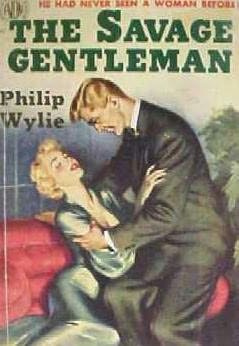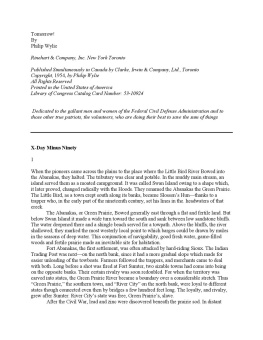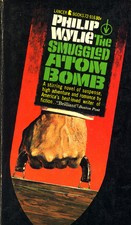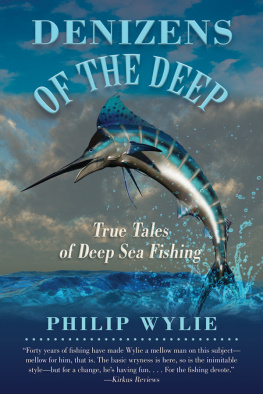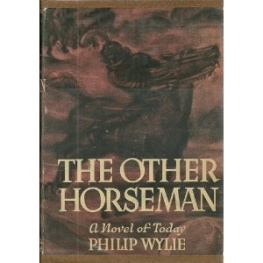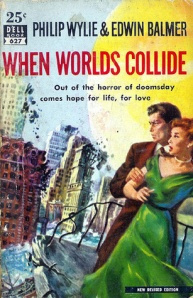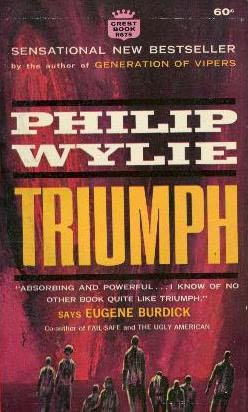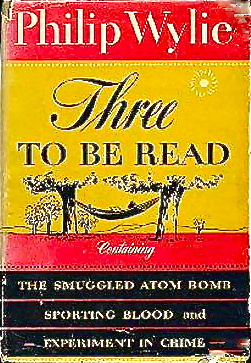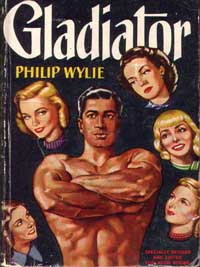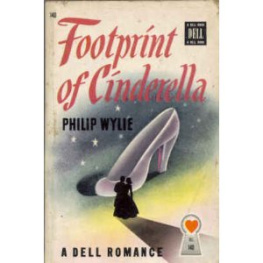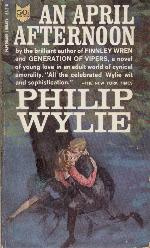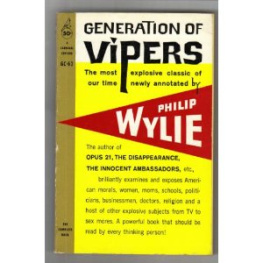Philip Wylie - The Savage Gentleman
Here you can read online Philip Wylie - The Savage Gentleman full text of the book (entire story) in english for free. Download pdf and epub, get meaning, cover and reviews about this ebook. genre: Detective and thriller. Description of the work, (preface) as well as reviews are available. Best literature library LitArk.com created for fans of good reading and offers a wide selection of genres:
Romance novel
Science fiction
Adventure
Detective
Science
History
Home and family
Prose
Art
Politics
Computer
Non-fiction
Religion
Business
Children
Humor
Choose a favorite category and find really read worthwhile books. Enjoy immersion in the world of imagination, feel the emotions of the characters or learn something new for yourself, make an fascinating discovery.
- Book:The Savage Gentleman
- Author:
- Genre:
- Rating:4 / 5
- Favourites:Add to favourites
- Your mark:
- 80
- 1
- 2
- 3
- 4
- 5
The Savage Gentleman: summary, description and annotation
We offer to read an annotation, description, summary or preface (depends on what the author of the book "The Savage Gentleman" wrote himself). If you haven't found the necessary information about the book — write in the comments, we will try to find it.
The Savage Gentleman — read online for free the complete book (whole text) full work
Below is the text of the book, divided by pages. System saving the place of the last page read, allows you to conveniently read the book "The Savage Gentleman" online for free, without having to search again every time where you left off. Put a bookmark, and you can go to the page where you finished reading at any time.
Font size:
Interval:
Bookmark:
by
Philip Wylie
What the story is about-
The Savage Gentleman was a full six feet two inches tall, and weighed a hundred and ninety pounds. His hair was bronze, his eyes turquoise, his skin mahogany. He was a magnificent man. When he laughed his voice poured from deep and resonant lungs. This young man 'came to New York never having seen a woman: he came to New York finding himself the owner of a great string of American papers, although he had never read a newspaper through. This was the young man who was told by his father: "Never, never, never believe a woman. Women are ruin. Love is a myth. Marry when you are over forty-five and marry someone you don't love." This is the story of what happened to a man who had been trained on an island remote from civilization to be a perfect physical specimen and a perfect gentleman, when he encountered the mad world of today and the modern girl-and did he pack a wallop!
BOOKS ARE WEAPONS--in a free democracy everyone may read what he likes. Books educate, inform, inspired they also provide entertainment, bolster morale. This book has been manufactured in conformity with wartime restrictions--read it and pass it on. Our armed forces especially need books--you may give them to your nearest U.S.O. office, leave them at your public library, or send them direct to the Commanding Headquarters of any Service Command, marked "For Army Libraries." Books for the Navy should be sent to Naval Supply Depot, Norfolk, Va., or Oakland, Calif.
This book can be mailed overseas, first class, sealed, without request, by wrapping it so it weighs under eight ounces and affixing postage at the rate of three cents per ounce. Only one book a week may be sent from the same sender to the same addressee.
A NOVEL OF ADVENTURE AND ROMANCE
THE SAVAGE GENTLEMAN
By PHILIP WYLIE
Author of "Night unto Night,"
"Footprint of Cinderella,"
"Corpses at Indian Stones," etc.
THE SAVAGE GENTLEMAN
Copyright, MCMXXXII, by Philip Wylie.
Reprinted by arrangement with Farrar & Rinehart, Inc., New York, N. Y.
............................................................................
List of Exciting Chapters-
I. The Shipwreck
II. The Isolation
III. The Stockade
IV. The Explorers
V. The Questions
VI. The Menace
VII. The Yearning
VIII. The Hopelessness
IX. The Miracle
X. The Savage
XI. The Gentleman
XII. The Woman
XIII. The Challenge
XIV. The Recall
XV. The Gunmen
XVI. The Holocaust
Chapter One:THE SHIPWRECK
WITHIN the triangle that is formed by Ceylon, Tasmania and Madagascar, on a pitch-black night, shortly before the turn of the last century, a steam yacht beat its way against massive seas.
It was a storm-worn vessel. The sails reefed close to its spars were dark and patched. Its brasswork was not bright. Hot sun had blistered its paint, and salt water had stripped it away. Yet these ravages could not conceal the ship's jaunty lines or eradicate the impression of an original luxury--a luxury now being ignored for stern use.
It carried no lights, except the dim radiation on the hurricane bridge. The sharp bow lifted and plunged. The single screw beat the black water to foam, turned in the air, and bit again in fresh swirls of phosphorus-flecked froth.
The light on the bridge sharply illuminated a compass and was reflected upon the countenance of a man at the wheel.
He was a tall, hawk-like man. His face was seamed and tan, and the dim illumination glinted on eyes that were like jewels in dark pockets. He wore a heavy ulster and his chin jutted over its collar. He swung with the working of the ship but his stiffly planted feet did not budge. His hands were tight on the wheel. They were white and long-fingered; the man had a seeming of former luxury like that of the yacht.
Eight bells rang on a small ship's clock.
The man leaned forward and peered through the deck housing.
He saw nothing.
Then, abruptly, he began to see. He was looking at the mauled deck before he realized the fact. His horizon expanded with rapidity.
The tumultuous scene became visible around him--long ranges of ominous mountains, white-capped and ponderously advancing, and a low-hanging sky that scudded darkly across the other half of his world.
The man's face was statuesque in the fantastic dawn. His lips were taut. His hair was a dark and rugged forest. In his rigidity, he \vas the image of relentless and unshakable purpose.
He seemed not a man in thought, but one whose thoughts had become stonily transfixed, a man with a grim deed to do, a soldier shot through the heart and still moving forward.
Below decks, in a dim stateroom, a baby cried to the unanswering storm and struggled aimlessly with the rungs which kept it from being thrown to the floor.
A man in an oily cap dozed on a braced kitchen chair that had been placed beside a pounding engine.
A giant Negro opened his eyes and rose, fully dressed. He tottered to the galley and began the difficult operation of preparing coffee.
There was no one else aboard the hell-bound vessel. Green water washed itself from the name on its stern.
It was the Falcon. Its port was New York.
The man at the wheel moved his lips. He scrutinized the compass. His gaze was no longer introverted; with every rise of the bridge it scanned the horizon.
The Negro appeared, coffee in a metal bottle; he pulled the door shut against the wind.
"Morning, Mr. Stone."
The man nodded.
"Coffee."
The pilot took the bottle, held it for the Negro to uncork, and drank slowly.
"Mighty bad weather, sir."
"Yes, Jack."
That was all. The door opened again. Wind fanned through the enclosed bridge.
The Negro fought his way back toward the galley. He went from there by a companionway to look at the baby. He stood over it for a while, shaking his head.
At eleven o'clock the wind died. A patch of blue appeared in the clouds and their color changed from purple-black to gray and white. At noon the sun shone.
Stone rang to the engine room and the man who bad been there joined him.
"Take the wheel, Mr. McCobb."
The Scotchman complied. He bit his down-turned pipe and glanced occasionally at his employer. Stone shot the sun and scrawled on a board.
"Four points east," he said.
At two he came up from a visit to the infant and took the wheel.
"You can go, Mr. McCobb."
An expanding of the lips that was not a smile came on Stone's face when he saw the island. It was, at first, little different from the waves on the remote water--the summit of a blue and vegetated hill. A lost, mist-hung oasis in the desert of the ocean.
The baby slept.
The Negro made sandwiches.
The Scot sat dully beside his engine.
From the sea the island emerged. It presented a narrow promontory, but the rise of hills inland indicated that it was of considerable extent. Immense evergreens grew upon it, interspersed with palms. Its coastline, which the Falcon presently skirted, was rocky and precipitous. The water around it was blue, brilliant blue beneath a sun now hot and white.
Stone steered in shirt sleeves. His eves followed the coast. He signaled for half speed.
In the engine room the Scotchman jumped at the jangle of the bells. Half speed.
meant--what? A caprice of the ship's master? Danger?
He did not think of land. In that latitude, no one thought of land.
Stone swung toward an indentation. When he seemed on the verge of colliding with the rocky shore, he swung again.
The outbent greenery almost touched the decks of the yacht. In a moment a broad and long harbor opened before the entering vessel. It was a wild, natural, unpopulated expanse of water. A green bird came as an escort from the forest and sat upon the bulwarks.
Next pageFont size:
Interval:
Bookmark:
Similar books «The Savage Gentleman»
Look at similar books to The Savage Gentleman. We have selected literature similar in name and meaning in the hope of providing readers with more options to find new, interesting, not yet read works.
Discussion, reviews of the book The Savage Gentleman and just readers' own opinions. Leave your comments, write what you think about the work, its meaning or the main characters. Specify what exactly you liked and what you didn't like, and why you think so.

